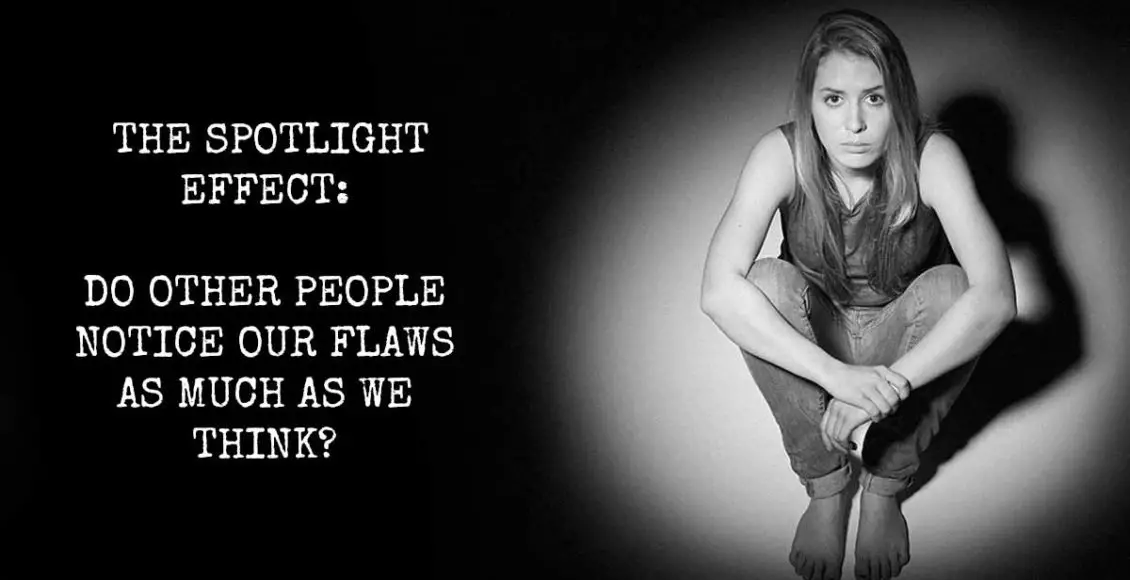Social anxiety is not at all funny.
It is a torture chamber that most of us happen to experience every now and then. It happens when we detect a threat to our need to belong. The flaws and imperfections we possess are often considered as such a threat: the shape of the nose, the inability to tell jokes, a couple of extra pounds on the hips, the mustard stain on the trousers … We all have our lists of inadequacies which work as anxiety triggers.
This may lead to a phenomenon known in social psychology as the ‘’spotlight’’ effect: the tendency to think that more people notice something (negative) about us than they do.
For example, last month I went to my hairdresser for a regular haircut. I relaxed effortlessly in his hands because he knows what he is doing and the result is usually satisfying enough. But this time he was in the mood to experiment and I ended up with a haircut that was too trendy for my taste. When I entered the office on the following day I was overwhelmed with the feeling that everyone was looking at my hair and privately laughing: ‘’Wow, someone’s got the midlife crisis here! What’s next: Botox and a sports car?’’.
Who Is the Centre of the Universe?
The odds are that I severely overestimated my coworkers’ reactions. According to research, they are most probably overconcerned with their own haircuts (and midlife crisis) to pay attention to mine.
It happens because we are at the center of our universe. What we forget is that other people are at the center of theirs. Even if they notice our social faux pas, they will probably forget them half a minute later. We are the ones left to ruminate upon the impression made and the laughter provoked.
One good reality check is to consider how much time you spend thinking about other people’s failure. Or other people, period. And it is not because you are a selfish narcissist. Ok, you probably are but the point is you are not alone. Everyone else is just as egocentric and self-absorbed.
The problem is that this kind of self-centeredness does not really bring about confidence. It brings about self-doubt.
Stepping out of the spotlight
Self-doubt is not all bad. It is part of our social nature and the need to get along with others. It becomes harmful when it prevents us from enjoying our work, social encounters or from taking risks.
One way to deal with the feeling of insecurity (when in the spotlight) is to actually step under the spotlight.
Venture for a presentation (if you are afraid of speaking in front of an audience), talk to a stranger (if you are afraid of talking with strangers), walk around with a ketchup stain on your shirt (if you are compulsive-obsessive about cleanliness), etc. There is nothing more enlivening than facing your fear of social failure … and surviving.
You may even inspire someone else to dare do something ridiculous. We all benefit from small doses of self-irony and ego deflation now and then.


